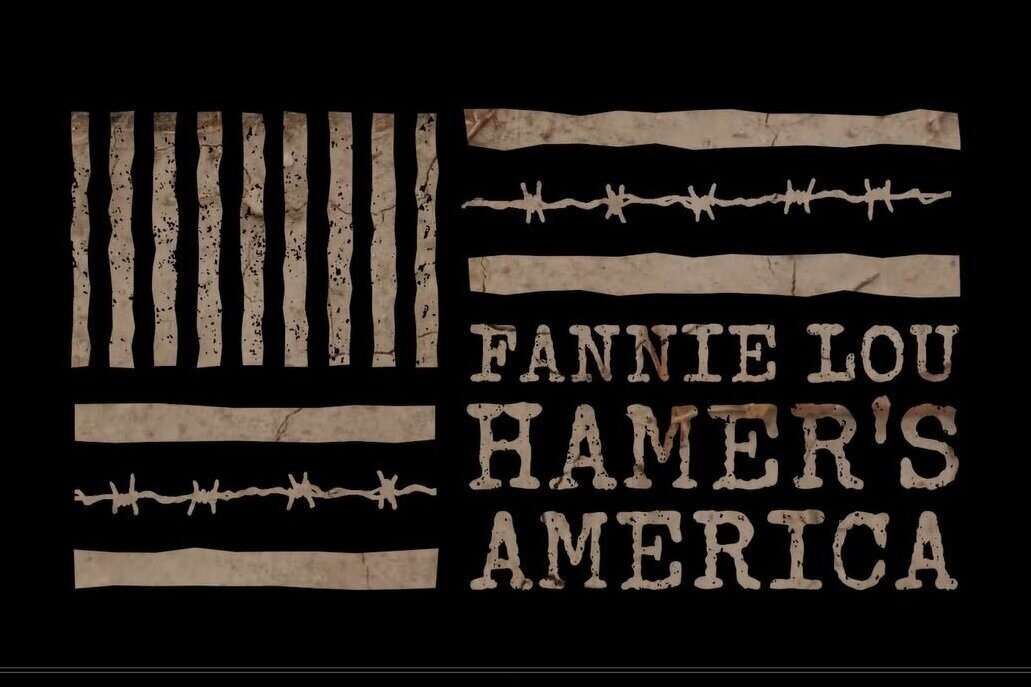Fannie Lou Hamer’s America/Find Your Voice Curriculum Designers Present at Race, Rhetoric and Media Symposium
March 1, 2019 – PORTLAND, OR
Two scholars from the Fannie Lou Hamer’s America Film and Find Your Voice Curriculum Team, Drs. Pablo Correa and Maegan Parker Brooks, recently shared their experiences on the project with an audience at the Pacific Northwest Race, Rhetoric, and Media Symposium hosted by Lewis & Clark College in Portland, Oregon.
First developed in 2015, this year’s event was held from February 28 to March 2, and featured guest keynotes and student research presentations. According to event organizers, “the field of rhetoric and media studies examines the processes of persuasion in politics and civic life, the effects of media on beliefs and behavior, the power of film and image to frame reality, and the development of identities and relationships in everyday life.” The event was free and open to the public and the theme was, Don’t “Just Do It:” Politics in Sports and Popular Culture. The symposium was a collaborative effort between the University of Puget Sound, Whitman College, and Willamette University.
On Friday, March 1, symposium participants were joined by MAT students from the Lewis & Clark Graduate School of Education and Counseling for a teaching session on the civil rights movement. Appropriately, Dr. Maegan Parker Brooks, an Assistant Professor in the Civic Communication and Media Department at Willamette and a noted Fannie Lou Hamer historian and author, spoke to audiences about the Find Your Voice K-12 Civil Rights Curriculum, which she collaboratively developed with Davis W. Houck and a team of educators from the Mississippi Delta.
“It was an honor to preview the innovative, multimedia, high-impact teaching units and materials that our Find Your Voice team designed,” she said. “The audience gathered at Lewis & Clark also gave us thoughtful feedback that will help guide our final revision of the curriculum.”
Brooks is also a consultant and researcher on the documentary, Fannie Lou Hamer’s America, slated for release later this year. She and fellow author, consultant and curriculum designer, Dr. Davis Houck, conducted an Educator’s Workshop with several teachers from the Mississippi Delta in June 2018 to design and develop the Find Your Voice Curriculum. A second workshop to finalize the lesson plans has been scheduled for Friday, March 15 in Cleveland, Ms.
“I look forward to finalizing the Find Your Voice curriculum and accompanying learning materials with Delta-area educators this March,” Brooks said. “We are on track for a summer release on our Find Your Voice website! Our hope is that teachers across the globe will make use of the expertly-designed lesson plans and other creative classroom materials when they return to school next fall.”
Correa, who received his doctorate in communication from Florida State University, is a videographer for the film and the project’s web designer. He is currently a Visiting Assistant Professor of Willamette University’s civic communication and media department. During the summer of 2018, he was one of three instructors for the Young Filmmakers’ Workshop hosted by the film team and funded by the W.K. Kellogg Foundation. Correa shared those experiences with an audience on Friday, March 1.
“I am extremely proud of what the students accomplished during the filmmakers’ workshop and it was great to be able to share their journey to becoming filmmakers with the audience at Lewis & Clark,” Correa said. “The room included education majors who I hope were inspired by how such a workshop can work to break down barriers to career fields in production and technology beyond high school.”
Correa and Brooks’s presentation concluded the Symposium, which historically features community activism and tangible applications of communication knowledge on the final day.
“As an undergraduate, I often became frustrated with how removed my studies felt from the everyday problems I saw occurring in my community,” said Brooks. “I hope our presentation provided students with the sense that publicly-engaged humanities projects are possible and that they can be incredibly rewarding endeavors.”
“I grew up in a very similar situation to the workshop’s students in the Mississippi Delta,” Correa stated. ”I could not afford advanced technology like video cameras and definitely would not have known how to use them to engage in public discourse. It is my hope that through this presentation, others are inspired to join in humanities projects which focus on finding voices that deserve to be heard and teaching them digital media skills to share their own unique stories.”
Fannie Lou Hamer’s America is a multimodal project, based on the civil rights activist’s life, that includes a new and original documentary, a K-12 educational curriculum, an interactive website and central clearinghouse for Hamer-related materials and a driving tour. The project’s mission is to create a platform for Hamer’s voice in modern times while addressing and promoting conversations about racial equity.
The project is funded by the W.K. Kellogg Foundation, the Mississippi Humanities Council, the Ella Baker Center for Human Rights, Freedom Singer Bill Perlman, Broadcast Journalist Tavis Smiley, McDonald’s/Retzer Resources, the Mississippi Delta National Heritage Area (MDNHA), the Women’s Foundation of Mississippi and the Phil Hardin Foundation.


